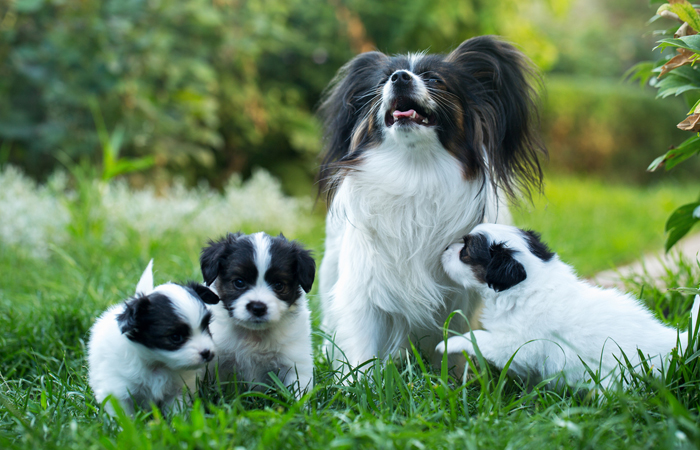
Are you thinking of buying something cute and cuddly for Christmas? Licensing officers have seen an increase in the number of puppies sold online at hugely inflated prices and are warning new owners of some of the pitfalls.
Are you thinking of buying something cute and cuddly for Christmas?
With everyone spending more time at home this year, many people have thought about getting a canine companion.
Licensing officers have seen an increase in the number of puppies sold online at hugely inflated prices and are warning new owners of some of the pitfalls.
Anyone breeding puppies and making profit from their sale should be licensed with their local authority as a breeder. This is a legal requirement and should not be confused with a Kennel Club registration.
Unlicensed breeders have not been subject to any animal welfare checks. Unscrupulous breeders can have little regard to animal welfare and make huge profits from the sale of poorly puppies.
New owners have found themselves paying out hundreds of pounds in vet bills to treat sick puppies and in some cases their new family member has been so ill they have to be put to sleep.
Councillor Pavitar K. Mann, cabinet member for planning and regulation, said: “If a family has weighed up all the costs and responsibilities required and decided to get a pet then taking a few precautions when purchasing a puppy prevents heartache further down the line.
“Families open their hearts to a new member of the family and if the animal is a victim of a puppy farming and ill when they get them, they could be facing hundreds of pounds in vets bills and grief if they are not well enough to go back home.”
Anyone looking to buy a puppy should look for these warning signs
Before visiting:
- Research. Check the seller’s profile and search their name online. If they are advertising many litters from different breeds, this is a red flag.
- Check if they are a licensed breeder. Ask which local authority they are licensed with and follow it up.
- Check contact details. Copy and paste the phone number into a search engine. If the number is being used on lots of different adverts, sites and dates then this is likely a deceitful seller.
- Check the animal’s age. Puppies should never be sold before they are eight weeks old. Do not buy from anyone advertising a puppy younger than eight weeks.
- Check the animal’s health records. Make sure the seller shares all records of vaccinations, flea and worm treatment and microchipping with you before completing a sale.
When visiting:
- Make sure the mum is present. If mum is not available to meet, it is unlikely the puppy was bred there. Beware the seller making excuses as to why mum is not there for example she is at the vet, asleep, or out for a walk.
- Check there isn’t a ‘fake’ mum. Most fake mums don’t interact with the puppies as they fear the real mum returning.
- Watch out for puppies labelled as ‘rescue’ but with much higher than expected price tags.
- If you feel rushed or pressurised into parting with cash, this is a red flag.
- Health problems observed at purchase are not normal. Don’t be convinced otherwise.
- Beware offers to meet somewhere convenient, such as a car park or motorway services, or shop front premises. If it is a rented property just to make sale kept separate from a nearby or onsite puppy farm, this is a red flag.

